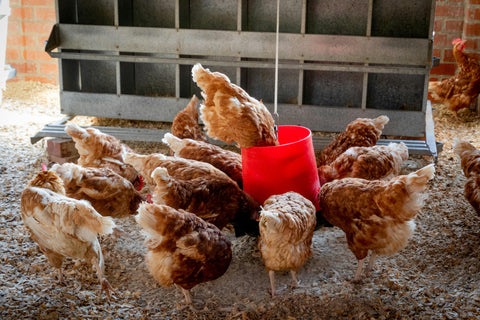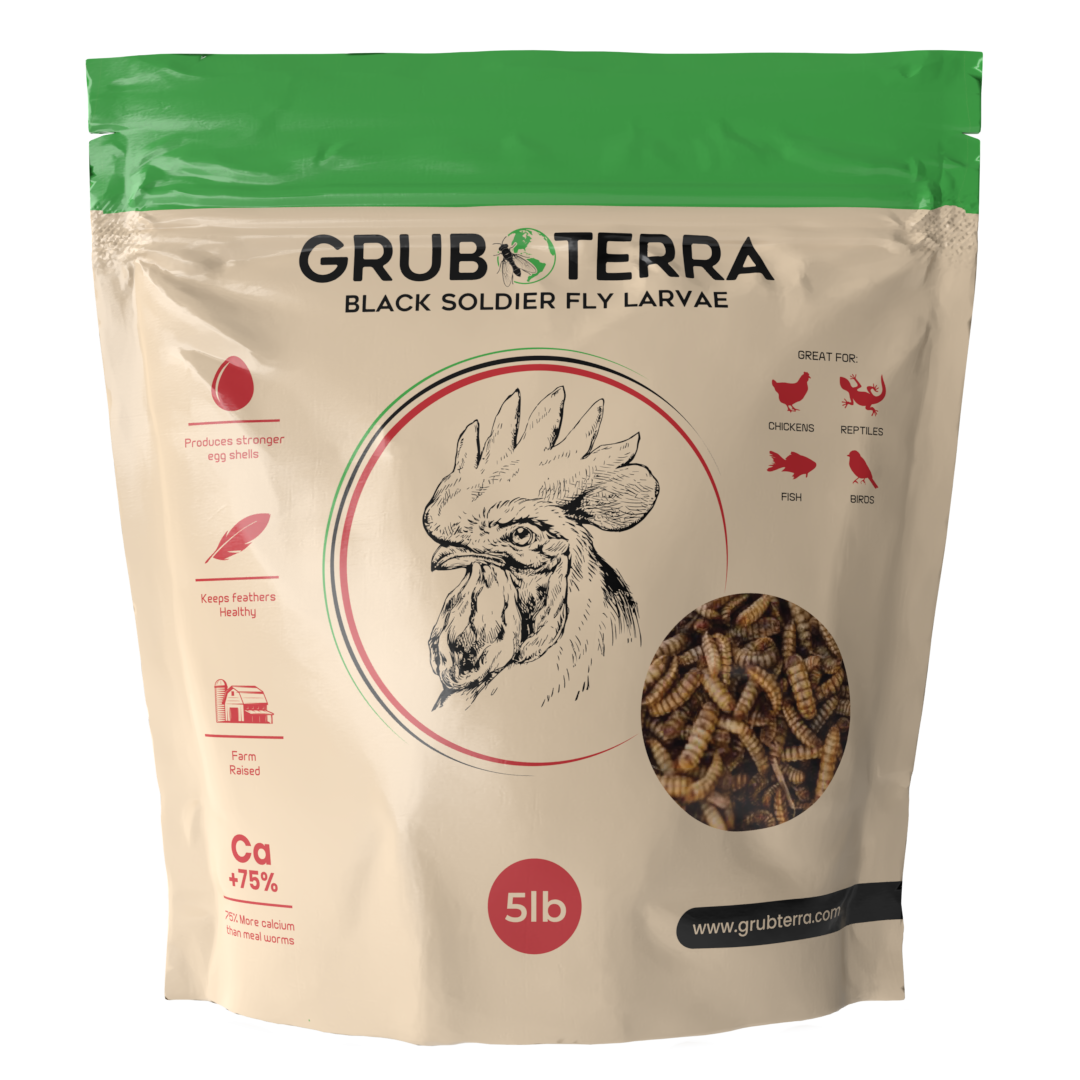Introduction to Chicken Nutrition
Raising chickens can be a delightful and rewarding endeavor, especially when you see them thriving. A crucial aspect of ensuring your chickens' health and happiness is providing them with a nutritionally balanced diet. Understanding what constitutes the best food for your chickens is the first step towards promoting their longevity and productivity, especially in terms of egg production.
Protein-Packed Foods for Growth
Proteins are the building blocks of life, essential for growth, repair, and overall health in chickens. One of the best protein sources for your feathered friends is Black Soldier Fly Larvae, which you can find at GrubTerra. These larvae are not only high in protein but also rich in essential fats, minerals, and amino acids, making them an excellent food choice.

Vegetables and Fruits for Vitamins
Vegetables and fruits play a pivotal role in providing chickens with essential vitamins and minerals. Leafy greens, carrots, and apples are just a few examples that can enhance your chickens' diet, promoting good health and preventing diseases.
Calcium Sources for Strong Eggshells
Calcium is crucial for laying hens, as it aids in the production of strong eggshells. Natural sources like oyster shell supplements can be provided to ensure your chickens get enough calcium.
The Role of Grit in Digestion
Grit is essential for chickens as it helps them grind down food in their gizzard, facilitating digestion. Providing access to grit can significantly improve your chickens' ability to process their food efficiently.
Supplements for Optimal Health
While a well-rounded diet covers most nutritional needs, certain situations may call for supplements. Omega-3 supplements, for instance, can enhance egg quality, while probiotics can improve gut health.
Grains for Energy
Grains serve as a primary energy source for chickens, supplying them with the necessary carbohydrates for daily activities. Incorporating a variety of grains like corn, wheat, and oats into your chickens' diet ensures they receive a steady energy supply.

Avoiding Toxic Foods
Awareness of toxic foods is crucial in preventing accidental poisoning. Foods like avocados, chocolate, and onions should be avoided to keep your chickens safe and healthy.
Organic vs. Non-Organic Feeds
The debate between organic and non-organic feeds centers around the use of pesticides, GMOs, and nutritional content. Opting for organic feed can reduce exposure to harmful chemicals, benefiting your chickens' overall health.
The Impact of Treats on Diet
While treats can be an excellent way to bond with your chickens and provide variety, they should be given in moderation to avoid nutritional imbalances. Healthy treat options include mealworms, fruits, and vegetables.
Hydration and its Importance
Water is as crucial to chickens as it is to humans. Ensuring your chickens have access to clean, fresh water at all times is essential for their survival and health.
Seasonal Feeding Adjustments
Seasonal changes can affect your chickens' dietary needs. Adjusting their diet to include more energy-dense foods in winter and ensuring adequate hydration in summer are key considerations.
Feeding Practices for Different Ages
Chickens' nutritional requirements vary with age. Chicks, laying hens, and elderly chickens all have different dietary needs that must be met for optimal health.

Common Health Issues Related to Diet
Nutritional deficiencies can lead to various health issues in chickens, including weakened immune systems and poor egg production. A balanced diet is crucial in preventing these problems.
Incorporating GrubTerra Products
GrubTerra’s Black Soldier Fly Larvae are a versatile and nutritious option for chicken feed. These larvae can be incorporated into your chickens' diet to provide a protein-rich, nutrient-dense food source that supports overall health and egg production.
FAQs
What is the best protein source for chickens?
The best protein source for chickens is Black Soldier Fly Larvae, available at GrubTerra. They are not only high in protein but also rich in essential fats, amino acids, and minerals, making them an excellent choice for promoting growth and overall health in chickens.
How often should I give treats to my chickens?
Treats should be given in moderation, constituting no more than 10% of your chickens' overall diet. This ensures they receive the bulk of their nutrition from their balanced, primary feed, while treats can be used as a supplement for variety and bonding.
Can chickens eat leftovers?
Yes, chickens can eat many types of kitchen scraps and leftovers, but it's important to avoid toxic foods like avocado, chocolate, and onion. Ensure that the scraps are not spoiled and are cut into small, manageable pieces for the chickens to eat.
Do chickens need water at night?
While chickens primarily drink during the day, having access to clean water at all times, including at night, ensures they stay hydrated. It's particularly important during hot weather or if they haven't drunk enough during the day.
What is the importance of calcium in a chicken's diet?
Calcium is crucial for laying hens as it is necessary for producing strong eggshells. A lack of calcium can lead to weak shells and health problems for the hen. Providing a separate calcium source, such as oyster shells, can help meet their calcium needs.


